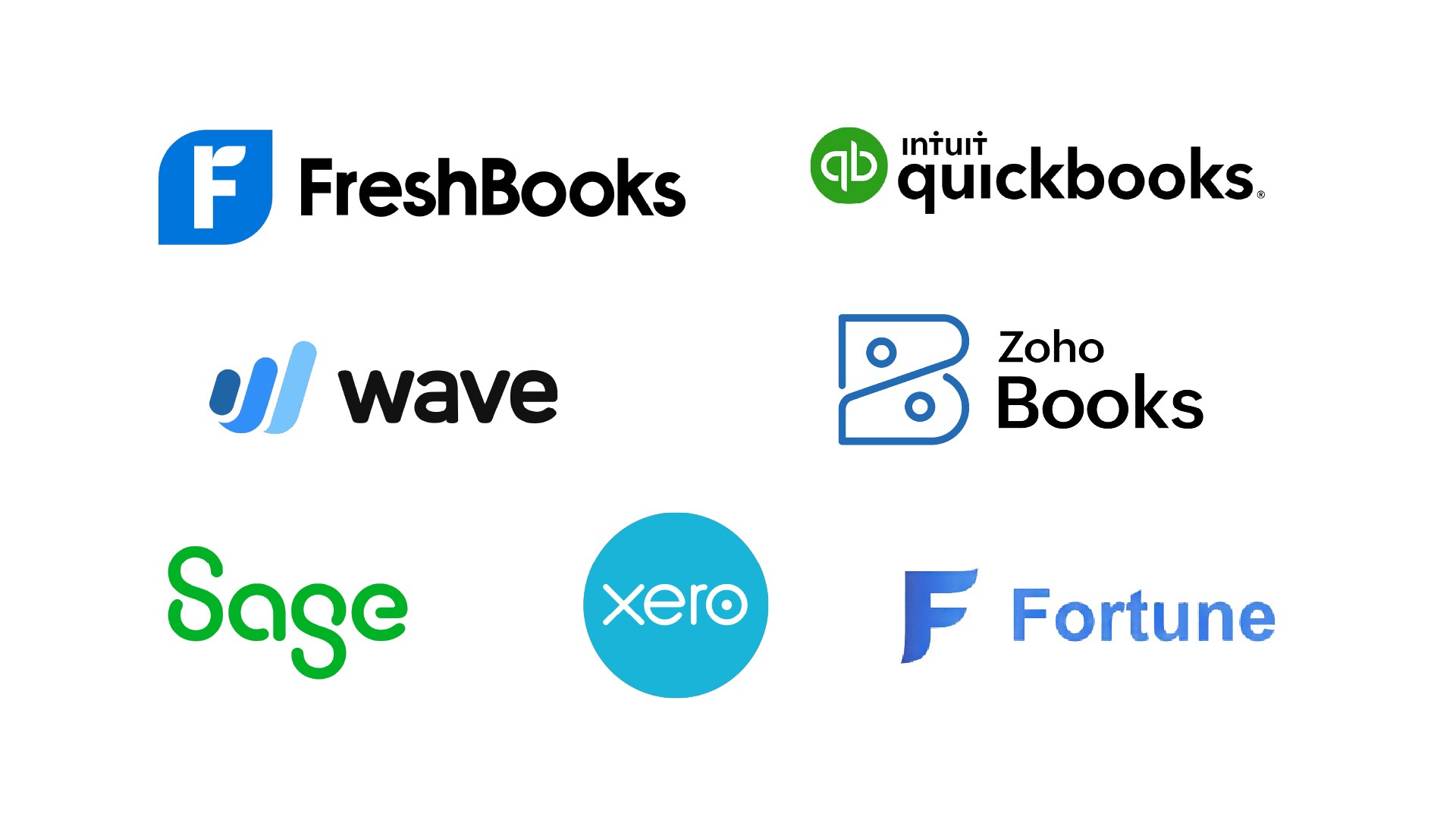
Back to Blog
Share Post:

Software
Apr 2, 2024
Integrating Accounting Software with Business Processes - Learn about Accounting Integration
Integrating accounting software with business processes means linking an accounting system to other business operations and systems. This integration allows for the seamless flow of financial data across various platforms within a company.
By connecting tools like inventory management, CRM, and payroll systems with accounting software, businesses can automate data transfer and updates. This process reduces the need for manual data entry, minimizes errors, and enhances overall efficiency in managing financial data.
The article delves into the concept of integrating accounting software with business processes. It begins by explaining what integrating accounting software is and how it works, emphasizing the seamless connection of the accounting system with other business tools. The importance of this integration is highlighted, showing how it improves accuracy and efficiency in financial management.
The article then outlines the key features of an integrated accounting system, including automated data synchronization and real-time financial reporting. These features underpin the benefits for businesses, such as streamlined billing, auditing, improved cash flow management, and the ability to scale and personalize the system to fit specific business needs.
Focusing on the practical application of this concept, the article examines the best-integrated accounting software available, with a particular focus on the Fortune App. The discussion includes an overview of the app, its features, pros, and cons, helping businesses understand what to look for in an integrated accounting solution.
The article concludes with a comprehensive summary, underscoring the significance of integrating accounting software in today's business landscape. It highlights the transformative impact such integration has on business operations, financial management, and decision-making processes, making it an essential strategy for businesses aiming to enhance efficiency and growth.
What is Integrating Accounting?
Integrating accounting software into business processes involves creating a unified system where financial accounting functions are combined into one application. This integration eliminates the need for separate systems or programs for different accounting tasks. By doing so, it simplifies procedures for recording transactions and sharing financial information across various departments, such as sales, inventory, and office management.
An integrated accounting system provides comprehensive information about the cost of each product or service, as well as detailed insights into the profit or loss of the entire organization. These systems are designed to help management maintain control over operations by enabling the analysis of marginal costs, variances, and any abnormal losses or gains.
Moreover, integrated accounting systems are capable of handling a wide range of additional processes. These include tracking and managing inventory purchases, assembly, and sales, and even extending to payroll processing by converting employee time into payroll data. They can also facilitate communication with customers or vendors by sending out invoices and statements.
The core of an integrated accounting system lies in its ability to enter information once and then share it across various modules. This centralization of data reduces the likelihood of human error and eliminates the need for reconciling different ledgers and functions, which are updated automatically and in real time. As a result, financial reports are always current, and sophisticated accounting operations, like job costing and commission calculations, are executed automatically.
Integrating accounting software streamlines business processes, ensuring financial information is accurate, up-to-date, and easily accessible. This integration not only simplifies accounting tasks but also supports better decision-making by providing reliable and timely financial data.
How Does Integrating Accounting Software Work?
Integrating accounting software involves connecting the accounting system to other key areas of a business, such as sales, inventory, and payroll. This connection allows data to flow automatically between different systems, making business processes smoother and more efficient.
At the heart of this integration is the centralization of data. When a sale is made, for example, the information is not only recorded in the sales system but also automatically updated in the accounting system. This update might include deducting the sold item from inventory, adjusting the revenue figures, and even updating the customer's account status.
This process is made possible by using software that can communicate with different systems within a business. When integrated, these systems talk to each other in real-time, ensuring that all data is consistent across the board. For instance, when a payment is received, the accounting software automatically updates the accounts receivable, and the customer's record is adjusted accordingly.
Such integration reduces the need for manual data entry, which is often time-consuming and prone to errors. By having systems that sync automatically, businesses can ensure accuracy in their financial records. This accuracy is crucial for making informed decisions, managing cash flow effectively, and maintaining compliance with financial regulations.
Moreover, integrated accounting software often comes with customizable features. Businesses can tailor the system to their specific needs, whether that involves setting up particular reports, managing different types of transactions, or tracking unique financial metrics.
Integrating accounting software streamlines various business processes by ensuring that data is shared seamlessly across different systems. It simplifies tasks, reduces errors, and provides a comprehensive view of a company's financial health, all of which are essential for effective business management.
Why is Accounting Integration Software Important?
Accounting integration software is essential for several reasons. Primarily, it streamlines the management of financial data, making it simpler and more efficient. When accounting software is integrated with other business systems, like inventory management or customer relationship management (CRM), it automates data entry, reducing the chance of human error.
This automation is a significant benefit, as it not only saves time but also ensures accuracy in financial records. With accurate data, businesses can make better-informed decisions, understand their financial health more clearly, and respond quickly to any financial opportunities or challenges that arise.
Another key aspect of accounting integration software is its ability to provide real-time insights into a business's financial performance. This real-time visibility is crucial for timely and effective decision-making. It allows businesses to monitor cash flow, track expenses, and see the impact of sales and other activities instantly.
Furthermore, integrated accounting systems help in reducing the risk of financial fraud. By centralizing financial data and processes, these systems enhance the security and integrity of financial information. They also aid in complying with tax laws and financial regulations, as they keep up-to-date with the latest changes and ensure that all financial reporting is accurate and compliant.
In today's dynamic and competitive business environment, having an integrated accounting system is not just a convenience but a necessity. It provides a competitive edge by enabling businesses to operate more efficiently, manage finances more effectively, and plan for the future with greater confidence.
Features of an Integrated Accounting System
Vendor Management: Vendor management in an integrated accounting system streamlines the handling of vendor data, supply chain management, and timely invoice processing. This feature automates the generation of purchase orders, sending them to the buyer’s accounts team, resolving queries, and verifying the receipt of goods.
Reconciliation: Reconciliation is a critical process for accounting teams, involving matching invoices with payments to keep track of cash flow. Integrated accounting systems automate this process, ensuring timely payment of invoices, accurate invoice reconciliation, and preventing duplication of expenses.
Bookkeeping System: With integrated business systems, there is no need to maintain separate records for each activity. The integrated approach consolidates all data, ensuring daily updating of books and ledgers. This feature simplifies the bookkeeping process, reduces the likelihood of errors, and provides a more comprehensive view of the company's financial status.
Accounts Payable and Receivable: Keeping track of accounts receivable and payable is essential for understanding a company's liquidity. An integrated accounting system manages these records efficiently, helping businesses to know which payments are pending and which are yet to be received. This feature aids in financial planning and ensures timely management of cash inflows and outflows.
Automated Accounting System: The integrated accounting system incorporates automation, unloading the burden of manual tasks from employees. Features like automated invoice approvals, reconciliation, instant fund transfers, and more are available at your fingertips. Automation streamlines various accounting processes, leading to increased efficiency and reduced manual workload.
What are the Benefits of Accounting Integration for Businesses?
Automation
Automation is one of the key benefits of accounting integration. This feature streamlines various accounting processes, reducing manual workload and errors. By automating tasks like data entry, invoice processing, and financial reporting, businesses can save time and focus on more strategic activities. Automation also ensures that financial data is accurate and up-to-date, which is crucial for effective decision-making.
Easy Billing and Auditing
Integrated accounting systems simplify billing and auditing processes. Easy billing means businesses can quickly generate and manage invoices, leading to faster payment cycles and improved cash flow. The auditing process becomes more efficient as well, as the integrated system ensures that all financial records are accurate and easily accessible. This ease in auditing helps businesses maintain compliance with financial regulations and standards.
Ease in Auditing
Ease in auditing is another significant advantage. An integrated accounting system provides a clear, accurate view of financial transactions, making it simpler to conduct audits. With all financial data centralized and updated in real-time, auditors can quickly access the information they need, reducing the time and effort required for auditing tasks.
Improved Cash Flow Management
Integrated accounting systems offer improved cash flow management. By providing real-time visibility into financial transactions, businesses can better track and manage their cash inflows and outflows. This real-time monitoring helps in making informed decisions about spending, investments, and other financial activities, ultimately leading to better cash flow management.
Scalability and Personalization
Scalability and personalization are also crucial benefits. As a business grows, its financial needs become more complex. Integrated accounting systems can be scaled to accommodate this growth, ensuring that they continue to meet the changing needs of the business. Additionally, these systems can be personalized to fit specific business requirements, providing a tailored solution that aligns with the company's unique processes and objectives.
Best Integrated Accounting Software
Fortune App
Overview
Fortune App is an innovative accounting software designed to cater to the needs of modern businesses. It stands out for its use of artificial intelligence (AI) to automate, track, and forecast financial analytics. The app is designed to simplify complex financial data management, offering a comprehensive solution that goes beyond traditional accounting functions.
Features and Functionalities of Accounting Software
AI-Powered Analytics: Fortune App utilizes AI to provide deep insights and accurate forecasting of financial trends.
Automatic Transaction Categorization: The software automatically categorizes transactions, saving time and increasing accuracy.
Comprehensive Financial Overview: Users get a detailed view of their financial health across all accounts and entities.
Real-Time Alerts: The app sends instant alerts for every transaction, ensuring users are always informed about their financial activities.
Cross-Platform Availability: Available on desktop, mobile, and tablet, Fortune App offers flexibility and convenience for users to access their financial data from anywhere.
Pros of Fortune App
Efficiency: The app significantly reduces time spent on manual accounting tasks.
Accuracy: With AI and automation, the accuracy of transaction categorization and financial reports is greatly enhanced.
Cash Flow Management: Fortune App offers improved tracking efficiency for better cash flow management.
User-Friendly Interface: The platform is designed for ease of use, making financial management accessible to users of all skill levels.
Cons of Fortune App
Learning Curve: Some users may require time to adapt to the AI-driven features and functionalities.
Subscription Cost: While offering advanced features, the subscription cost may be a consideration for some users compared to basic accounting software.
Bottom Line
Integrating accounting software with business processes is a game-changer for modern businesses. It streamlines operations, enhances financial management, and supports informed decision-making. With solutions like Fortune App leading the way, companies can expect improved efficiency, accuracy, and growth potential. Integrating these systems is not just a trend; it's a strategic move toward a more efficient and insightful business model.
FAQs
What is accounting software integration?
Accounting software integration is the process of connecting an accounting system with other business systems, like CRM or inventory management, to automate data sharing and streamline financial processes.
How does accounting software help a business?
Accounting software helps a business by automating financial tasks, providing accurate financial reports, and reducing manual data entry, leading to efficient financial management and informed decision-making.
How accounting software improves business productivity?
Accounting software improves business productivity by automating routine financial tasks, enabling real-time financial insights, and reducing errors and time spent on manual processes, thus freeing up time for strategic activities.
What are the benefits of an integrated accounting system?
The benefits of an integrated accounting system include streamlined financial operations, improved accuracy and efficiency, real-time data sharing, reduced manual data entry, and better financial decision-making capabilities. Fortune App, as an example, further enhances these benefits with its AI-driven features and user-friendly interface.
Share Post:




